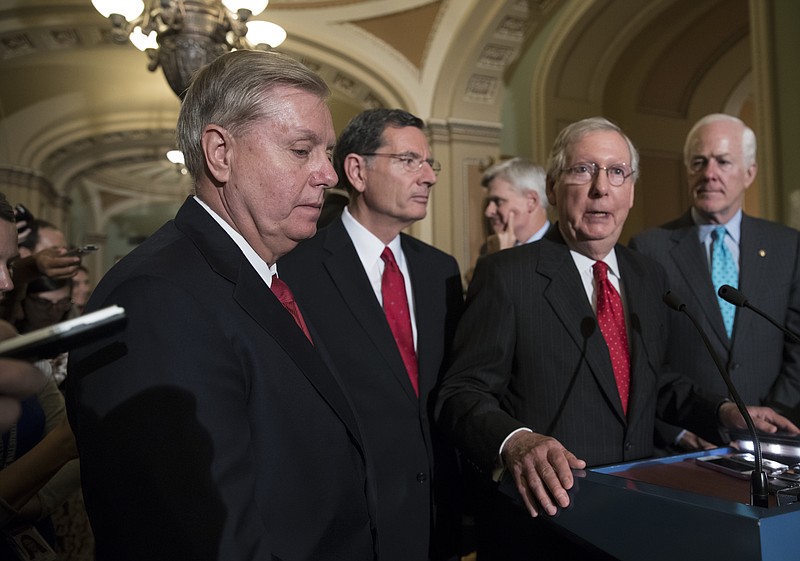NASHVILLE, Tenn. (AP) - The rules for who can run as a Republican in deeply red Tennessee are getting harder.
State Republican Party Chairman Scott Golden said Friday that the GOP wants to remain welcoming to new supporters. But that doesn't mean they should immediately be able to become Republican nominees come election time, he said.
"This isn't saying that we don't want people to be Republicans - this is the standard that we have for people wanting to get the Republican nomination to serve in public service," Golden said.
In the little-noticed change to party bylaws approved this summer, candidates must now have voted in three out of the last four GOP state or federal level primaries to be considered bona fide Republican candidates. For candidates seeking to appear on next year's ballot that will mean voting histories can be scrutinized going back to the August 2012 primary.
The previous standard was for candidates to have voted in two of the last four GOP primaries.
Exceptions in the new rules will be made for candidates not old enough to have voted in the last four primaries, moved from another state or had an illness or military service that prevented them from voting. A letter from established Republicans to vouch for GOP newcomers could override the primary voting requirement, at the chairman's discretion.
Challenging a candidate's bona fide status requires a complaint from two Republican voters. But in another change, those complaints must be made from the same district the candidate is running in to avoid activists from trying to interfere with races outside their home areas.
Golden, who will have the final say over all challenges, said he expects successful efforts to oust candidates to be rare.
"Of the close to 1,000 candidates who might potentially run as Republicans, you're talking about a handful of people that might not qualify," he said.
But one Republican candidate could have a high likelihood of being excluded from the ballot. Three-time Democratic candidate Larry Crim filed federal paperwork in October to run for the U.S. Senate - this time as a Republican.
"If you were standing with Barack Obama and Hillary Clinton as recently as 12 months ago, it's hard to argue that you are now a dedicated Republican worthy of serving our nation at its highest levels as a Republican," Golden said.
Golden said any challenge will have to wait until state candidacy petitions become available in January. But should that challenge be filed, it's difficult to envision Crim withstanding the party's scrutiny, he said.
"I think that is something the political committee will look at and say, it's not that we don't want you in the Republican Party, but in order for you to seek office on our ballot with our stamp of approval we would like for you to be involved in the Republican Party for a decent amount of time," he said.
Crim ran for Democratic nomination for Senate in 2012, coming in fourth. He came in fourth again when he ran for the Senate nomination two years later. And in 2016, he ran against U.S. Rep. Steve Cohen of Memphis, even though Crim lives in Nashville. He received 406 votes, or less than 1 percent of the total.
Crim said that the U.S. Constitution should govern who can service in federal office, not the state party. He added that Golden was wrong about his support for Clinton.
"I made the decision last year to convert to and run as a Republican because the democrat party left me and the people of Tennessee," Crim wrote. "I voted for President Trump, as did my wife, Annette, and our family in November."
Crim noted that he had filed federal paperwork to run a Republican candidate for Senate even before Election Day.
"It's Trump's party now, not Golden's or establishment party status quo swamp dweller wannabes," Crim said.
